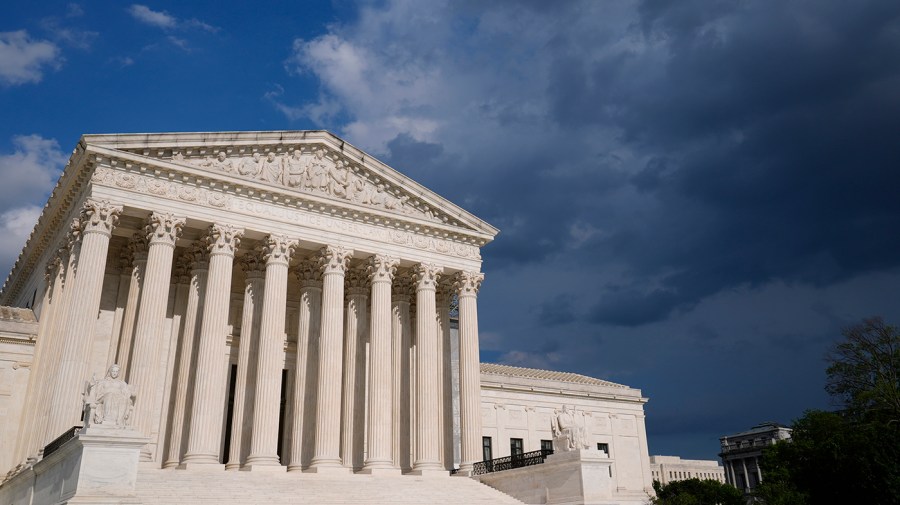This Supreme Court case could redefine the presidency

The Supreme Court is about to hear oral arguments in a case that sounds like a fight over toy imports but is really about the future of presidential power. On Nov. 5, in the only case being heard on that day, the justices will take up Learning Resources, Inc. v. Trump, and the question behind it is huge: Can a president declare a “national emergency” whenever he wants to set his own economic policy?
Beginning in early 2025, President Trump used a Cold War-era statute called the International Emergency Economic Powers Act to impose tariffs on everyday goods. The law was written in 1977 to let presidents act fast in actual crises — freezing terrorist assets, cutting off hostile regimes, etc. — not to micromanage trade policy or score political points. But Trump’s team argued that America’s trade imbalance with China was itself a “national emergency.”
The result: companies like Learning Resources, which makes educational toys and classroom supplies, got hammered with new tariffs that had nothing to do with any genuine emergency.
In April, the company sued. The district court initially blocked the tariffs on May 29, 2025, finding that the International Emergency Economic Powers Act doesn’t authorize the president to impose them and that the measures posed an existential threat to the plaintiffs. That ruling — and a similar one from the U.S. Court of International Trade — were both quickly stayed on appeal.
The fight has now landed at the Supreme Court, where the core issue is deceptively simple: can the word “emergency” be stretched so far that it covers anything a president feels like tackling without Congress? Because if the answer is yes, that’s not just a trade story — that’s a blueprint for a permanent emergency presidency.
It’s critically important to understand that the International Emergency Economic Powers Act was born in an era when Congress wanted to rein in executive excesses after Vietnam and Watergate. The idea was to keep presidents from declaring emergencies that, well, never actually ended. But over time, those guardrails eroded. There are already more than 40 official national emergencies still on the books, most of them years old, quietly renewed every 12 months like streaming services no one remembers ordering.
If the court sides with Trump, that number could explode.
Any president could call an economic problem a national security threat and start rewriting the rules — imposing tariffs, freezing investments, even restricting technology or energy flows — without a single new vote in Congress. That’s not just potentially awful or theoretical; picture a future president declaring an “AI emergency” or a “housing-market emergency” to justify sweeping economic controls. Once the precedent exists, it becomes the playbook.
Sure, Congress could step in. The Constitution gives it the exclusive power to regulate commerce with foreign nations and to levy tariffs. But for decades, lawmakers have handed that power away, preferring the convenience of broad statutes that let presidents take the heat while they issue press releases. This case may finally force a reckoning: How much authority can Congress delegate before it stops being a co-equal branch?
The court has been hinting at this moment for years. In West Virginia v. EPA, the justices told federal agencies they can’t make major policy moves without clear authorization from Congress. In Loper Bright v. Raimondo, they killed the old Chevron rule that told judges to defer to agency interpretations. Learning Resources v. Trump takes that same logic and points it at the Oval Office itself. If the court means what it said about restoring constitutional balance, this is the natural next step.
There’s also some tasty irony baked into all of this. A case brought against Donald Trump could end up limiting the powers of every president who comes after him — Republican, Democrat or whatever comes next. If the court draws a firm line and says “emergency” actually has to mean something, it will strengthen the separation of powers that keeps our system honest. If it doesn’t, then “emergency” will become just another synonym for “policy I can’t pass through Congress.”
When the justices take their seats on Nov. 5, they won’t just be talking about tariffs; they’ll be deciding whether “national emergency” remains a safeguard or becomes a loophole. Because if every challenge can be declared an emergency, then every presidency becomes a permanent one — and that’s an emergency no democracy can afford.
Aron Solomon is chief strategy officer for AMPLIFY and has taught entrepreneurship at McGill University and the University of Pennsylvania.